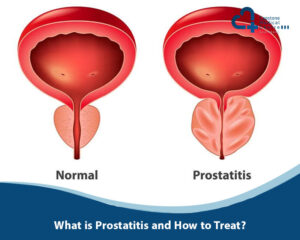
What is Prostatitis and How to Treat?
Prostatitis, a condition that has significant implications for men’s health,


MD, FRACGP, FACAM
Advance Diploma in General Dermatology
Diploma of Cosmetic Medicine

The 2023 Australian Child Maltreatment Study revealing that nearly two in three Australians (62.2%) have experienced some form of child maltreatment (with 58.4% of males and 65.5% of females affected), it is crucial to explore the broader implications of such experiences on an individual’s life.
While we recognize that adverse childhood events like domestic violence or substance abuse have well-documented links to negative long-term outcomes, the extent of their influence on pregnancy outcomes has remained less understood. To address this knowledge gap, researchers from the University of Queensland embarked on a comprehensive study.
Their investigation involved a systematic review and meta-analysis of existing research papers, which examined the connections between traumatic childhood experiences and complications during pregnancy. These complications encompassed issues such as prenatal depression, anxiety, and adverse birth outcomes like low birth weight, preterm birth, or stillbirth. Rigorous assessments of paper quality and bias were conducted, and data were meticulously extracted for the meta-analysis. In total, 32 studies were incorporated into the final review.
The findings of the research underscore a clear association between adverse childhood experiences and pregnancy complications. Specifically, individuals who had undergone such childhood events were found to be 37% more likely to be diagnosed with gestational diabetes, 39% more likely to develop antenatal depression, 59% more likely to give birth to a low-weight baby, and 41% more likely to experience a premature delivery.
This study not only highlights the critical importance of preventing childhood trauma and abuse but also sheds light on contextual factors that may be of interest to clinicians. When a patient’s history includes a record of abuse, they may face a higher risk of poor pregnancy outcomes, necessitating additional support or intervention during this critical period. Understanding these dynamics can also have broader implications, including effects on household finances and cognitive decline.

Prostatitis, a condition that has significant implications for men’s health,

Back to all The Best Foods to Eat While Working

Back to all Healthy Relationships What is a healthy relationship?

Back to all How to shop for healthy food on

Back to all Travel Vaccinations: What to know before you
Monday – Wednesday
Thursday – Friday
Saturday
Sunday
Public holidays
9 am to 5:30 pm
8:30 am to 6:30 pm
10.00 am to 3.00 pm
closed
closed
© 2020 All rights reserved.
